 The most succinct summary of this Bharati Mukherjee story I’ve seen came from a Goodreads review: An Iraqi Jew unwittingly aids a Central American revolution. There is obviously a lot more to it, including lust, arms smuggling, treachery and murder. Moreover, rather than being a revolutionary hero, the protagonist is an unscrupulous American criminal on the run from the law. Although he calls himself a “middleman”, we don’t see him act as such. Being new to the country, he is hoping to make a living from things that fall. And something certainly does! Themes: lust, corruption, exploitation, betrayal, violence. More…
The most succinct summary of this Bharati Mukherjee story I’ve seen came from a Goodreads review: An Iraqi Jew unwittingly aids a Central American revolution. There is obviously a lot more to it, including lust, arms smuggling, treachery and murder. Moreover, rather than being a revolutionary hero, the protagonist is an unscrupulous American criminal on the run from the law. Although he calls himself a “middleman”, we don’t see him act as such. Being new to the country, he is hoping to make a living from things that fall. And something certainly does! Themes: lust, corruption, exploitation, betrayal, violence. More…
Archives
All the King’s Horses
 The major theme of this Cold War allegory from Kurt Vonnegut is the human cost involved in resolving armed conflicts. The focus of the story is the moral dilemma faced by those in ultimate command… the need to put personal feelings aside and make strategic decisions that are likely to result in collateral losses. The story also reflects the dynamics of power in war: how the ordinary soldier, general population, and even vassal powers such as Pi Ying’s rebels, are mere pawns in a “game” beyond their control. Other themes: cruelty, dehumanization, sacrifice, manipulation. More…
The major theme of this Cold War allegory from Kurt Vonnegut is the human cost involved in resolving armed conflicts. The focus of the story is the moral dilemma faced by those in ultimate command… the need to put personal feelings aside and make strategic decisions that are likely to result in collateral losses. The story also reflects the dynamics of power in war: how the ordinary soldier, general population, and even vassal powers such as Pi Ying’s rebels, are mere pawns in a “game” beyond their control. Other themes: cruelty, dehumanization, sacrifice, manipulation. More…
A Passion in the Desert
 This story by Honoré de Balzac recounts the adventures of a French soldier lost in the Egyptian desert during the Napoleonic conquests. He finds a small oasis, but soon realizes that it is already occupied… by a leopard! He befriends the beast and the two manage to co-exist, with the leopard becoming more and more trusting and playful. Although he describes the (female) leopard in increasingly sensual terms, he later learns that the desert holds other passions: (In the desert there is everything and nothing… it is God without mankind.) Themes: isolation, animal/human bonding, distrust, betrayal, finding God in nature. More…
This story by Honoré de Balzac recounts the adventures of a French soldier lost in the Egyptian desert during the Napoleonic conquests. He finds a small oasis, but soon realizes that it is already occupied… by a leopard! He befriends the beast and the two manage to co-exist, with the leopard becoming more and more trusting and playful. Although he describes the (female) leopard in increasingly sensual terms, he later learns that the desert holds other passions: (In the desert there is everything and nothing… it is God without mankind.) Themes: isolation, animal/human bonding, distrust, betrayal, finding God in nature. More…
The Offshore Pirate
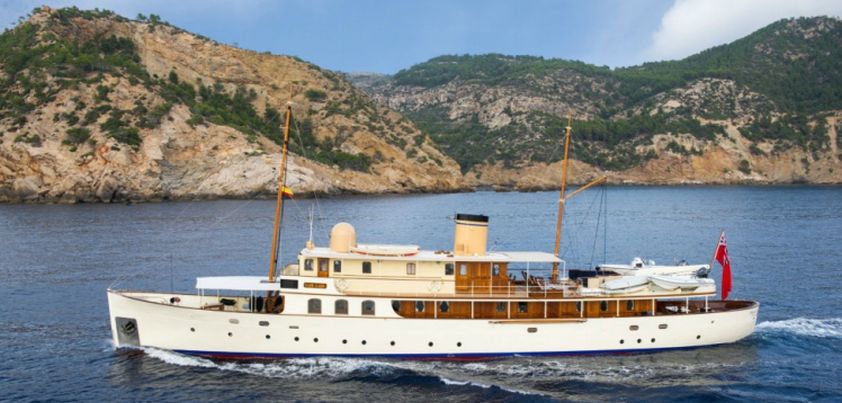 Several F. Scott Fitzgerald stories feature spoiled young women from wealthy families who make a sport of manipulating the men around them. Ardita, the flapper protagonist in this romantic adventure, is one of the rudest, most obnoxious of these. A highlight of the story is Fitzgerald’s powerful descriptive language. A disturbing feature for today’s readers is the use of 1920s social and racial slurs in building Curtis Carlyle’s backstory. Major themes include wealth, egotism, rebellion against authority, escapism, racism and class-consciousness. Despite the closing “illustrative” kiss, one wonders if any relationship with Ardita could have a happily ever after ending. More…
Several F. Scott Fitzgerald stories feature spoiled young women from wealthy families who make a sport of manipulating the men around them. Ardita, the flapper protagonist in this romantic adventure, is one of the rudest, most obnoxious of these. A highlight of the story is Fitzgerald’s powerful descriptive language. A disturbing feature for today’s readers is the use of 1920s social and racial slurs in building Curtis Carlyle’s backstory. Major themes include wealth, egotism, rebellion against authority, escapism, racism and class-consciousness. Despite the closing “illustrative” kiss, one wonders if any relationship with Ardita could have a happily ever after ending. More…
Heart of Darkness
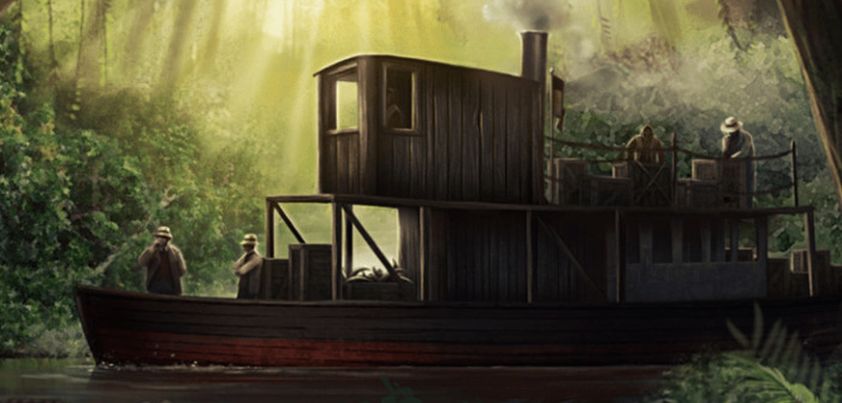 This story by Joseph Conrad is told through the eyes of a riverboat captain sent into the heart of Africa to contact an enigmatic trading post manager employing questionable methods. It explores the concept of Darkness on several levels. At the highest, we have the ‘darkness’ of unexplored Africa, and the ‘darkness’ of European imperialism in seeking to subjugate its peoples and exploit its resources. On a more fundamental level, we have the potential ‘darkness’ (capacity for cruelty/evil) in the heart of every man. Themes include alienation and loneliness, power, moral and mental degeneration under colonialism, racism, cruelty, greed, exploitation. More…
This story by Joseph Conrad is told through the eyes of a riverboat captain sent into the heart of Africa to contact an enigmatic trading post manager employing questionable methods. It explores the concept of Darkness on several levels. At the highest, we have the ‘darkness’ of unexplored Africa, and the ‘darkness’ of European imperialism in seeking to subjugate its peoples and exploit its resources. On a more fundamental level, we have the potential ‘darkness’ (capacity for cruelty/evil) in the heart of every man. Themes include alienation and loneliness, power, moral and mental degeneration under colonialism, racism, cruelty, greed, exploitation. More…
An Outpost of Progress
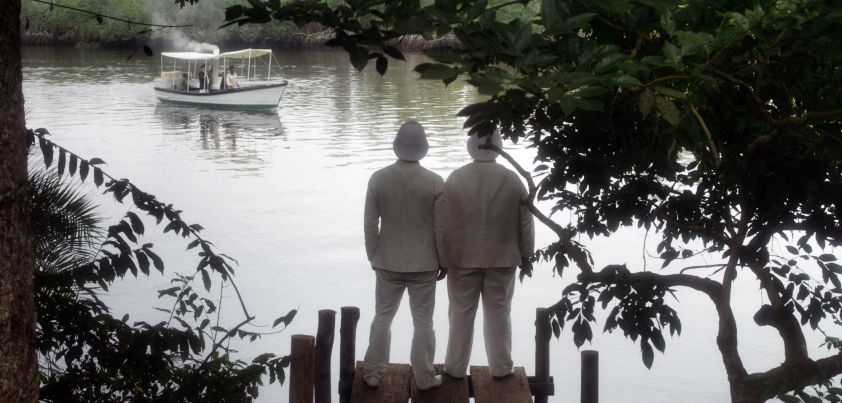 Joseph Conrad’s major theme in this story is the hypocrisy of colonialism. Motivated by greed, the bumbling administrators of a remote African trading post rationalize their activities by talking about the sacredness of the civilizing work, and the merits of those who (go) about bringing light, and faith and commerce to the dark places of the earth. They denigrate the local tribesmen, but make no effort to learn their language or customs. Ironically, being cut off from civilization results in their moral, physical and mental decline to an even lower level of savagery. Themes: colonialism, greed, slavery, isolation, madness. More…
Joseph Conrad’s major theme in this story is the hypocrisy of colonialism. Motivated by greed, the bumbling administrators of a remote African trading post rationalize their activities by talking about the sacredness of the civilizing work, and the merits of those who (go) about bringing light, and faith and commerce to the dark places of the earth. They denigrate the local tribesmen, but make no effort to learn their language or customs. Ironically, being cut off from civilization results in their moral, physical and mental decline to an even lower level of savagery. Themes: colonialism, greed, slavery, isolation, madness. More…
The Most Dangerous Game
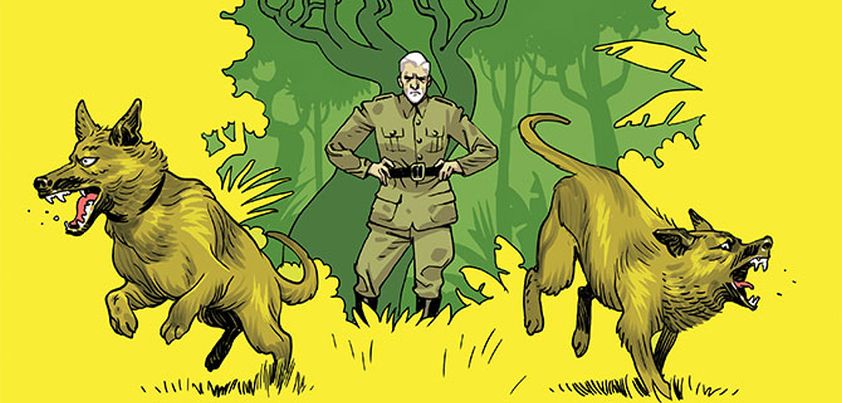 Although written almost a hundred years ago, this seemingly timeless adventure story from Richard Connell is still widely taught in schools. In addition to being an exciting, suspenseful read, one of the reasons for this is the continuing passionate debate about the ethics of hunting for sport. Rainsford the hunter has no regard for the rights or feelings of the animals he kills; Rainsford the hunted clearly thinks otherwise. Note the play on words in the title. Both the ‘game’ Zoroff plays and the ‘game’ he hunts are dangerous. Themes: trophy-hunting, man’s inhumanity to man, violence and cruelty, survival, revenge. More…
Although written almost a hundred years ago, this seemingly timeless adventure story from Richard Connell is still widely taught in schools. In addition to being an exciting, suspenseful read, one of the reasons for this is the continuing passionate debate about the ethics of hunting for sport. Rainsford the hunter has no regard for the rights or feelings of the animals he kills; Rainsford the hunted clearly thinks otherwise. Note the play on words in the title. Both the ‘game’ Zoroff plays and the ‘game’ he hunts are dangerous. Themes: trophy-hunting, man’s inhumanity to man, violence and cruelty, survival, revenge. More…
The Treasure in the Forest
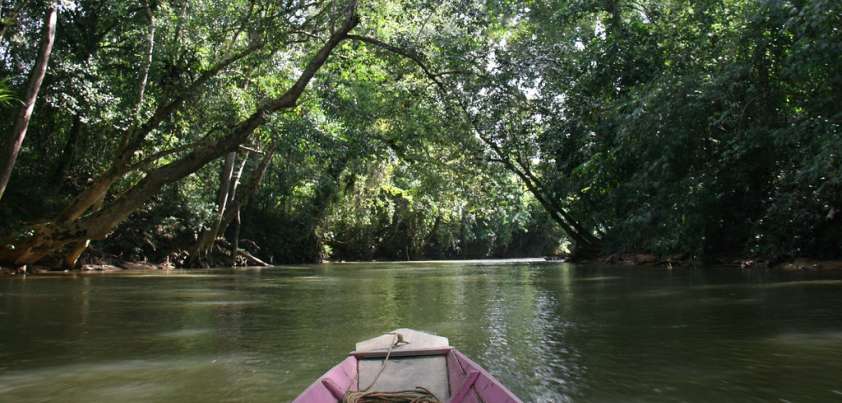 In this adventure story by H. G. Wells, two men arriving by canoe on a deserted Borneo island have killed another to get their hands on a map. As well as including some strange symbols and unintelligible Chinese writing, the map shows the location of a buried treasure. When the men reach the spot, they are delighted to find the treasure intact. As they carry some of it away, they learn to their cost the meaning of the symbols on the map, and why its owner was smiling as they killed him. Themes include greed, crime and punishment, karma. More…
In this adventure story by H. G. Wells, two men arriving by canoe on a deserted Borneo island have killed another to get their hands on a map. As well as including some strange symbols and unintelligible Chinese writing, the map shows the location of a buried treasure. When the men reach the spot, they are delighted to find the treasure intact. As they carry some of it away, they learn to their cost the meaning of the symbols on the map, and why its owner was smiling as they killed him. Themes include greed, crime and punishment, karma. More…
The Secret Sharer
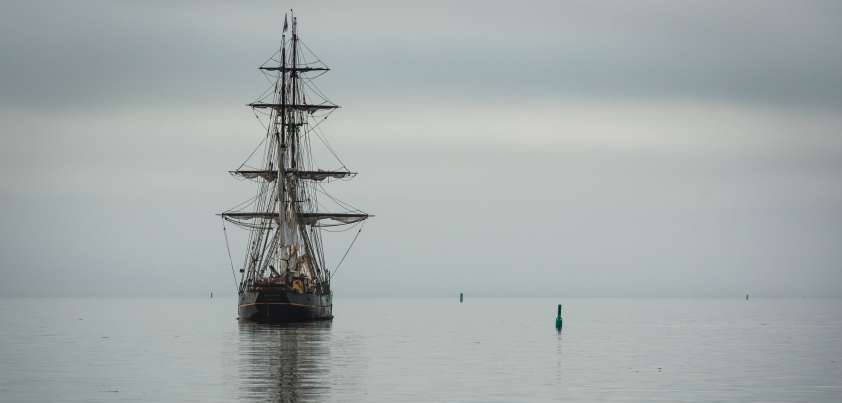 The term secret sharer in this Joseph Conrad adventure could apply to both the protagonist (a young ship’s captain preparing for his first sea command) and his fugitive cabin guest. The similarities between them in terms of age, appearance and background suggest that Conrad is using the guest as a foil to highlight the captain’s strengths and weaknesses. Unlike the guest, the captain is unsure of himself and does not project the self-confidence and authority needed to gain the respect of his older, more experienced officers. Themes include leadership, isolation, identity, duality, self-awareness, self-mastery, and the power of the sea. More…
The term secret sharer in this Joseph Conrad adventure could apply to both the protagonist (a young ship’s captain preparing for his first sea command) and his fugitive cabin guest. The similarities between them in terms of age, appearance and background suggest that Conrad is using the guest as a foil to highlight the captain’s strengths and weaknesses. Unlike the guest, the captain is unsure of himself and does not project the self-confidence and authority needed to gain the respect of his older, more experienced officers. Themes include leadership, isolation, identity, duality, self-awareness, self-mastery, and the power of the sea. More…
To Build a Fire
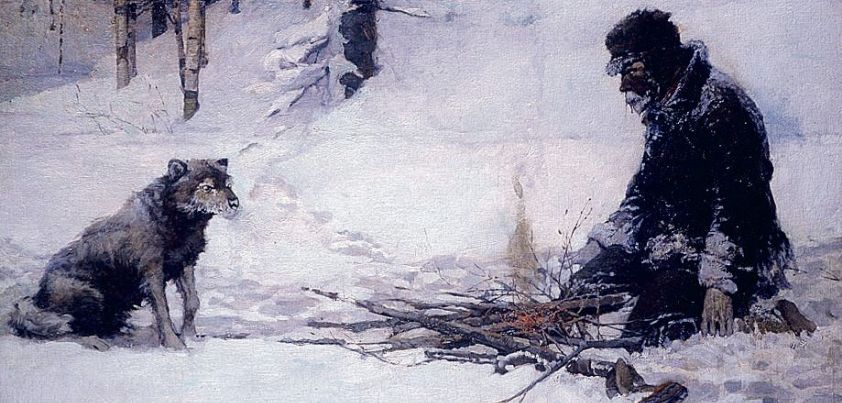 Jack London is one of the leading authors in a literary style called “naturalism”. Such stories deal with the unforgiving power of nature and man’s struggle for survival. To Build a Fire takes place in the frozen wilds of Alaska. A poorly prepared prospector decides to return to his camp in dangerously cold weather conditions, ignoring advice from more experienced men never to travel through the snow alone. A single foolish mistake brings disaster and the most comfortable and satisfying sleep he had ever known. Themes include survival (man vs. nature), listening to advice, preparedness, instinct vs. intellect, death. More…
Jack London is one of the leading authors in a literary style called “naturalism”. Such stories deal with the unforgiving power of nature and man’s struggle for survival. To Build a Fire takes place in the frozen wilds of Alaska. A poorly prepared prospector decides to return to his camp in dangerously cold weather conditions, ignoring advice from more experienced men never to travel through the snow alone. A single foolish mistake brings disaster and the most comfortable and satisfying sleep he had ever known. Themes include survival (man vs. nature), listening to advice, preparedness, instinct vs. intellect, death. More…
The Green Door
 This story by O. Henry provides a mix of adventure, mystery, romance and humor. By day, Rudolf Steiner lives a normal life working in a piano store. At night, he walks the streets looking for adventure. One night, adventure calls in an unusual way. A man standing outside a building hands him a card containing the words: The Green Door. Rudolf goes inside and knocks on the only green door he can find, leading to a series of events that could change his life. Themes include the nature of adventure (risk vs. rewards), chance vs. fate, romance. More…
This story by O. Henry provides a mix of adventure, mystery, romance and humor. By day, Rudolf Steiner lives a normal life working in a piano store. At night, he walks the streets looking for adventure. One night, adventure calls in an unusual way. A man standing outside a building hands him a card containing the words: The Green Door. Rudolf goes inside and knocks on the only green door he can find, leading to a series of events that could change his life. Themes include the nature of adventure (risk vs. rewards), chance vs. fate, romance. More…
The Learned Adventure of the Dragon’s Head
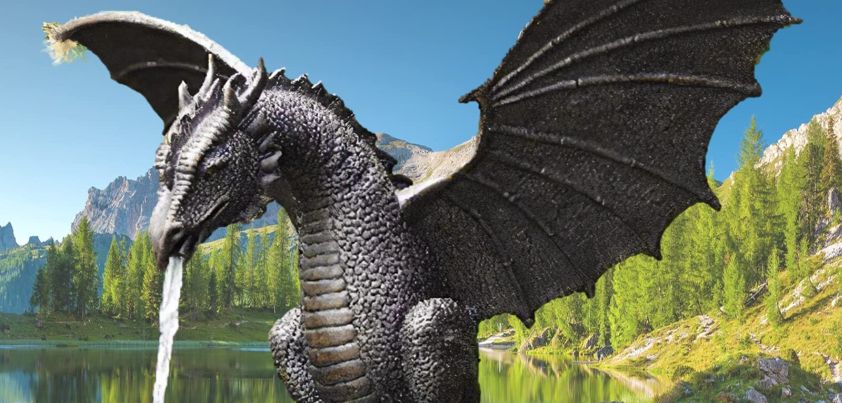 Lord Peter Wimsey, Dorothy Sayers’s eccentric amateur sleuth, is saddled with his ten-year-old nephew while his parents are away overseas. As the two browse an antiquarian bookshop, the boy is attracted to the maps and pictures in a badly damaged copy of Cosmographia Universalis, an early description of the world. He buys the book, and shortly afterwards a strange man visits and offers Wimsey two hundred times what the boy paid. This leads to a “Boys Own” type adventure involving attempted robbery, Scotland Yard and a riddle leading to buried pirate treasure. Themes include curiosity, greed, mystery, deception, and philanthropy. More…
Lord Peter Wimsey, Dorothy Sayers’s eccentric amateur sleuth, is saddled with his ten-year-old nephew while his parents are away overseas. As the two browse an antiquarian bookshop, the boy is attracted to the maps and pictures in a badly damaged copy of Cosmographia Universalis, an early description of the world. He buys the book, and shortly afterwards a strange man visits and offers Wimsey two hundred times what the boy paid. This leads to a “Boys Own” type adventure involving attempted robbery, Scotland Yard and a riddle leading to buried pirate treasure. Themes include curiosity, greed, mystery, deception, and philanthropy. More…
Youth
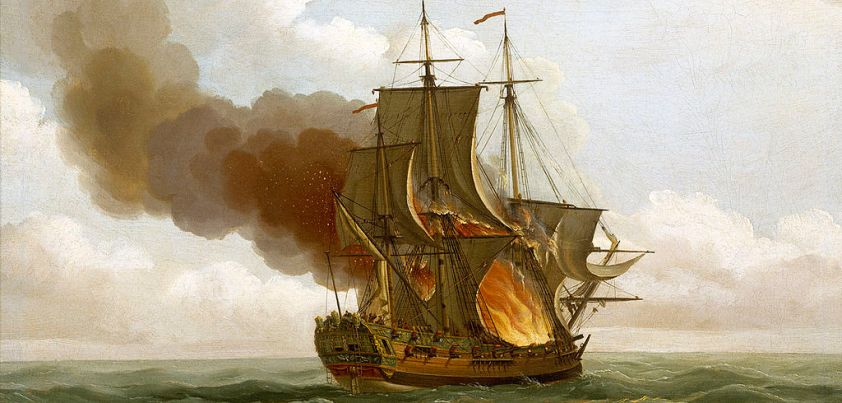 This story from Joseph Conrad is more than a survival tale about an unseaworthy ship beset by bad luck. Central themes are youthful exuberance bordering on recklessness, regret for its passing, and the romance of the sea. The explosion that sinks the vessel marks a turning point for a young ship’s officer. Up until then, his enthusiasm had been fueled by a youthful desire to experience the wonders of the East. He discovers a new side of himself (leadership ability) when he temporarily takes command of the crew’s evacuation to the lifeboats. Other themes: courage, duty, misfortune, survival, self-discovery, pride. More…
This story from Joseph Conrad is more than a survival tale about an unseaworthy ship beset by bad luck. Central themes are youthful exuberance bordering on recklessness, regret for its passing, and the romance of the sea. The explosion that sinks the vessel marks a turning point for a young ship’s officer. Up until then, his enthusiasm had been fueled by a youthful desire to experience the wonders of the East. He discovers a new side of himself (leadership ability) when he temporarily takes command of the crew’s evacuation to the lifeboats. Other themes: courage, duty, misfortune, survival, self-discovery, pride. More…
The Open Boat
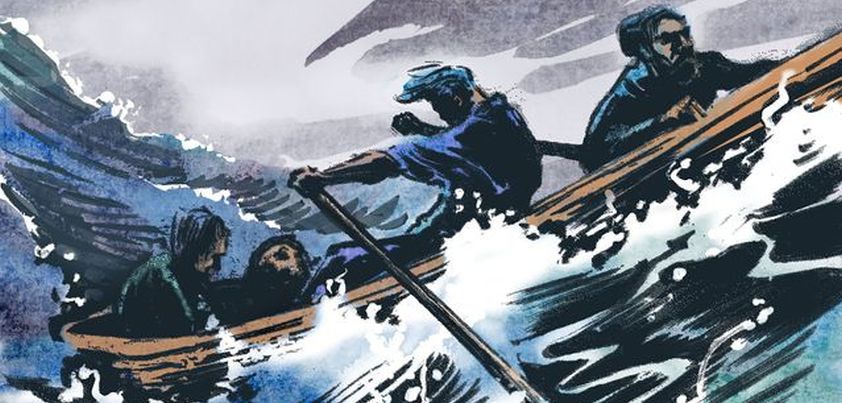 A remarkable aspect of this story from Stephen Crane is that it is based on an actual event in the author’s life. This adds credibility to what to me is a defining feature of the story: the way that throughout the ordeal four men from such diverse backgrounds were able to maintain their self-discipline and work so well together. The Open Boat is considered a classic in the literary style called “naturalism”. Such stories deal with the unforgiving power of nature and man’s struggle for survival. Themes: man vs. nature/the sea, perspective (appearance vs. reality), courage, teamwork, survival. More…
A remarkable aspect of this story from Stephen Crane is that it is based on an actual event in the author’s life. This adds credibility to what to me is a defining feature of the story: the way that throughout the ordeal four men from such diverse backgrounds were able to maintain their self-discipline and work so well together. The Open Boat is considered a classic in the literary style called “naturalism”. Such stories deal with the unforgiving power of nature and man’s struggle for survival. Themes: man vs. nature/the sea, perspective (appearance vs. reality), courage, teamwork, survival. More…
The Old Man and the Sea
 The central character in this award-winning novella by Ernest Hemingway is a down on his luck, aging fisherman who hasn’t caught a fish for 84 days. Convinced things are about to change, he ventures further out to sea than usual and hooks a giant marlin longer than his small boat. He finally reels it in after a three-day struggle and secures it to the side of his boat. Sadly, his prize is “stolen” on the way back to shore. Themes: man vs. nature, friendship, luck, memories, perseverance, suffering, religion, pride, defeat (a man can be destroyed but not defeated). More…
The central character in this award-winning novella by Ernest Hemingway is a down on his luck, aging fisherman who hasn’t caught a fish for 84 days. Convinced things are about to change, he ventures further out to sea than usual and hooks a giant marlin longer than his small boat. He finally reels it in after a three-day struggle and secures it to the side of his boat. Sadly, his prize is “stolen” on the way back to shore. Themes: man vs. nature, friendship, luck, memories, perseverance, suffering, religion, pride, defeat (a man can be destroyed but not defeated). More…